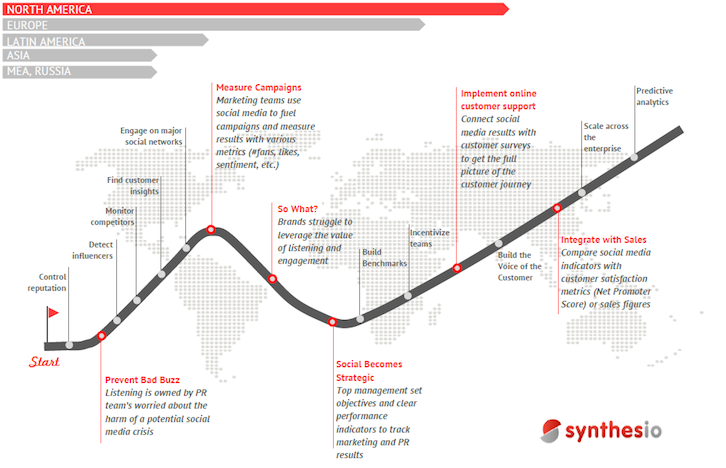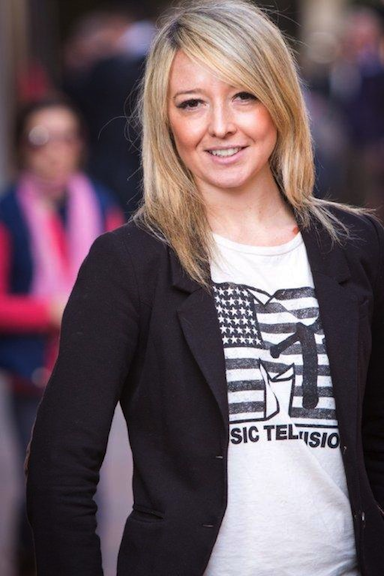By adaptive - April 15th, 2013
Facebook may be one of the leading social media platforms today, but it is still seen as a dark horse when it comes to marketing success.
May 2012: General Motors pulls advertising spend from Facebook. The reason? Joel Ewanick, former GM marketing chief, said, “[GM] is definitely reassessing our advertising on Facebook.” Take a look here
April 2013: General Motors tests advertising on Facebook once again with a series of paid-for adverts on the site. Said Chris Perry, vice president for United States marketing of the Chevrolet division of General Motors, “Chevrolet is testing a number of mobile advertising solutions, including Facebook.”
Almost exactly one year later GM has returned to Facebook and reinstituted a series of ads. Is this show of faith a sign that the platform is finally coming into its own as a marketing tool?
As of October 2012 Mark Zuckerburg announced that Facebook had reached the 1 billion user mark and, according to a report on Social Media Listening Maturity by Synthesio, Faceboook remains the top social network in Europe, but shares space with Twitter in North America and Canada. In Asia Facebook dominates in Hong Kong, Singapore, Malaysia, India, Indonesia and the Philippines.
Facebook offers brands a number of ways to promote themselves. You can buy advertising that can drive traffic to your site or Facebook page, you can pay for sponsored posts so you sit squarely in the timelines of target markets, or you can open up a Facebook page and use it as a brand messaging platform. This should all make for a marketer’s dream, but there remains the feeling that Facebook marketing doesn’t quite have the reach it should.
The issues that sit before the Facebook throne include:
- Lack of clear marketing objectives will often see Facebook campaigns fail and the resultant disillusionment means a lack of faith in the platform itself.
- Facebook ad spend and marketing needs to adapt and fine-tune to succeed and many marketers forget to integrate with other platforms for a cohesive campaign, expecting too much from one site.
- You’re competing with friends and family for attention. The site is noisy and you need to find ways of being noticed in the clutter.
- The growing mobile market makes it difficult to measure returns and to deliver targeted advertising.
- There is a constant debate on the value of organic vs. paid and no real solution on either side.
- Facebook’s constant updates are meeting with resistance from users and causing confusion which impacts on the brands that advertise to these users.
- Measuring ROI remains inconsistent and Facebook has had to reassess their tools, recently removing the Friends of Fans feature for a more accurate representation of reach.
Facebook Fans
The infographic below from Synthesio shows the lifecycle of social media adoption and clearly outlines the ‘So What?’ point where brand start to question the value of their social media investment. This is where most give up and head out, but this should be what inspires businesses to step up the way that they handle their marketing as a whole. Instead of seeing Facebook as the marketing platform, it should be seen as one of many, working together to deliver one brand message.
The social media listening maturity curve by Synthesio

Sharon Flaherty, head of content at Confused.com, doesn’t believe that Facebook needs to be part of every marketing campaign, “It depends what you are trying to achieve. If you want to drive traffic to your website for little cost, then Facebook can do that. It should be a part of a brands daily messaging, part of the conversation and it is a thermometer testing how warm your fan base is to certain topics, posts, content, products, and services.”
A targeted campaign on Facebook that has clear objectives and measurable results has been shown to work well on the platform, in spite of the noise and competition.
In an interview with Business Insider, Gokul Rajaram, Facebook’s director of product management for ads, said that, “You get anywhere from 15% to 20% of your fans that you reach organically. In order to reach the remaining 80 to 85%, sponsoring posts is important.”
In short, you need to spend smart to reach the audience and convey the message and organic is only a fraction of your overall reach. Does this result in commercial success? For some, yes.
Interflora had tried Facebook as an acquisition channel in the past but had little success in generating orders. They used the UK-based ad-tech company Glow [www.thisisglow.com] to develop a campaign for Valentine’s Day 2013. The solution used engaging content on desktop and mobile devices via the news feed, sponsored stories and right-hand side adverts. The result was a 600% increase against target orders at a cost per sale that was 83% less than target.
“Success on Facebook is vital for Interflora,” says Damian Routley, CEO and founder of Glow, “They needed another source of customer acquisition that could provide sufficient volume and a real alternative to Google. There is a common misconception in the market that Facebook does not perform effectively for direct response advertisers and this shows that it is patently not the case.”
“I find that marketing campaigns that have a simple call to action can work on Facebook, but not a strong call to action,” says Kerry Bannigan, CEO and Co-Founder of Nolcha, “I have stopped advertising or buying the promoting posts as I found lack of results. We thought it was our strategy and content for a while. Then we realised it was the changes to the site. We spoke to people we knew were on our page and they claimed to not even see the posts unless they visited our page directly.”
A mobile world
Another area that demands Facebook start to pull up its marketing socks and show some value is mobile. A recent survey by IDC and Facebook saw 70% of the respondents use Facebook on their phones, 61% using it every day, and the average amount of time spent browsing the network was 33 minutes a day. By the end of 2012 two thirds of the site’s billion active users came to the mobile site and advertising revenue from mobile platforms made up 23% of Facebook’s advertising take.
It seems likely that Facebook is going to start offering advertisers more options on mobile, especially with the launch of Facebook Home and the HTC First Facebook smartphone.
That’s nice. Facebook has a huge mobile following and there are options for businesses to reach their target markets by using a variety of channels. Does this make it worth spending money on?
“It is commercially viable if you’re spending the right amount of resource on it,” says Flaherty, “It perhaps wouldn’t pay most brands to have someone employed full time only working on Facebook, but it is worth having someone managing all the community channels full time. I find that, for Confused.com, Facebook fans convert best for us than other social channels currently.”
“Facebook is interesting on a brand advocacy level,” adds Bannigan, “When we share our images, video and press coverage on our Facebook page, we receive interest from potential clients as industry followers have shared or liked our work. In addition, our existing clients like our marketing items that include them, and they share everything which does build brand advocacy for us.”
Facebook’s ability to get fans to opt into your marketing and brand is worth watching, especially as they advance into the mobile market and continue to develop new apps and solutions for both businesses and consumers. “It’s minimal in cost when compared with other media in the marketing mix,” adds Flaherty, “If you have a consistent presence, work hard to build up the community, it will convert fans to customers. It’s just how many customers it converts that’s the question, and how hard you’re having to work for it.”
That is most definitely the question. In the next piece we will be examining how to measure Facebook’s return on investment in a meaningful way, and the growth of F-commerce.

Sharon Flaherty is the head of content for the enormously successful Confused.com website

Damian Routley is the founder and CEO of ad-tech company Glow.

Kerry Bannigan is the CEO and Co-Founder of Nolcha
Next Reads
June 2014, New York
Become a social business: For superior marketing response, sharper corporate decision-making, enhanced innovation and a happier, more loyal customer
Brochure Programme